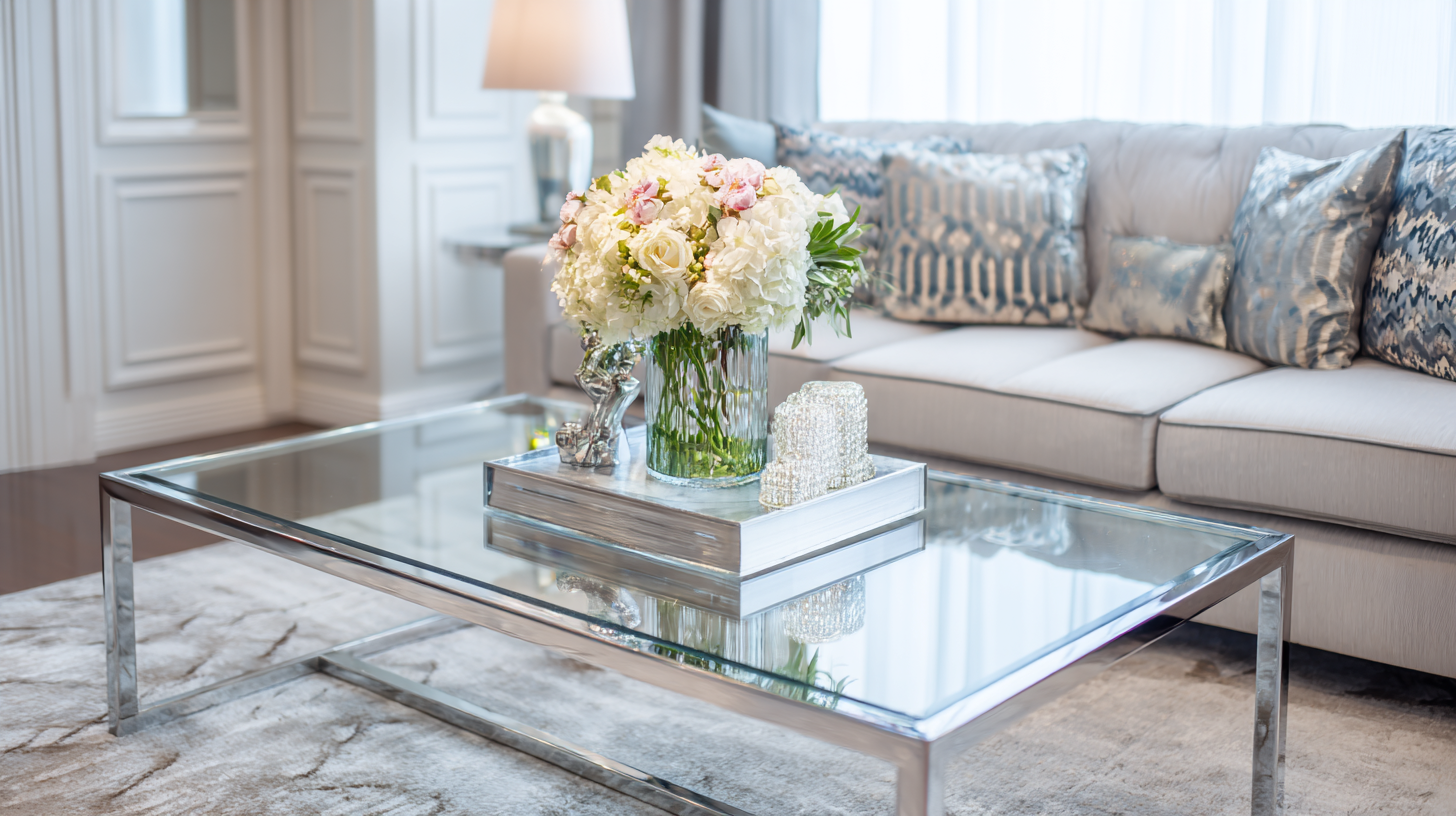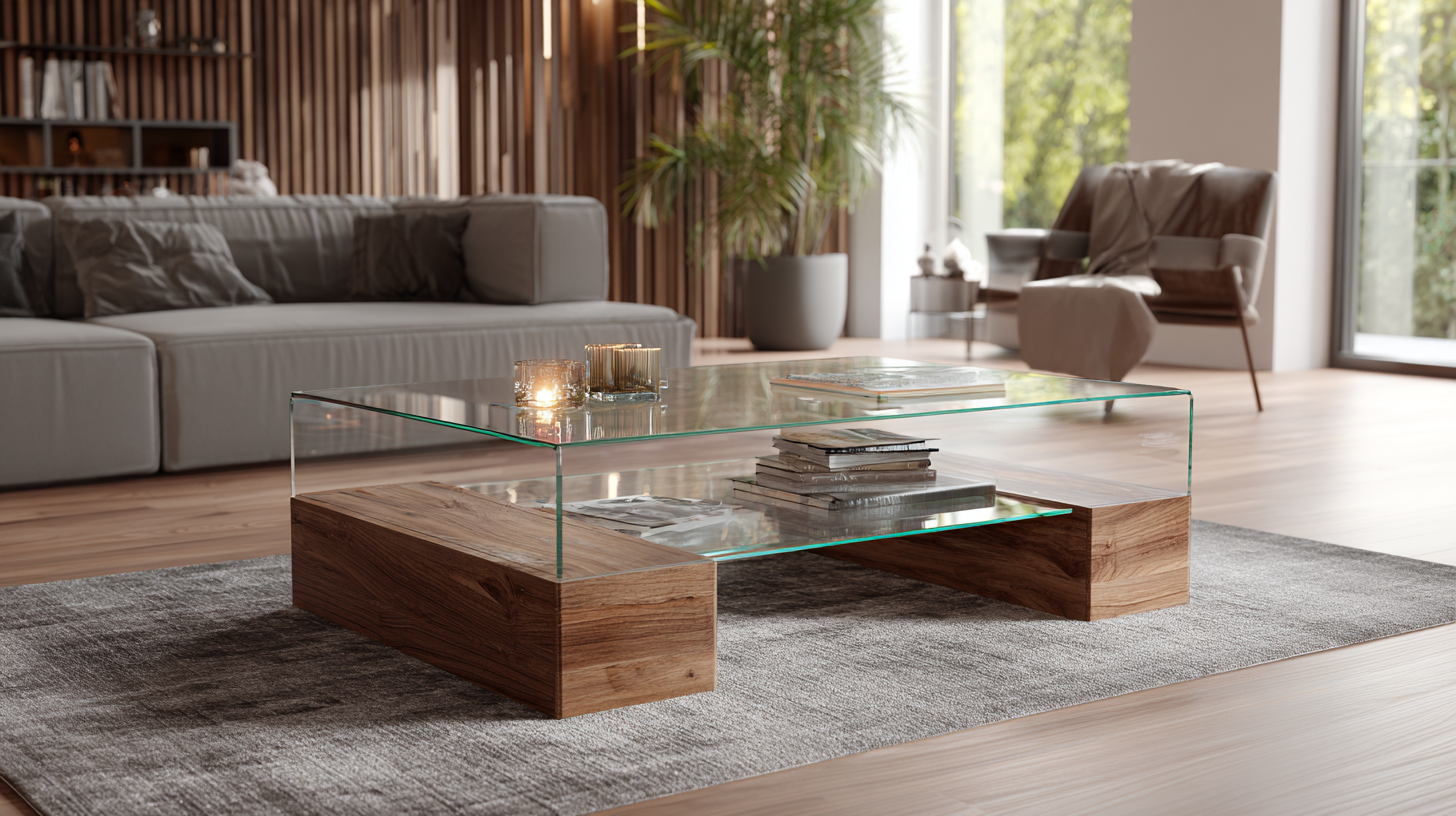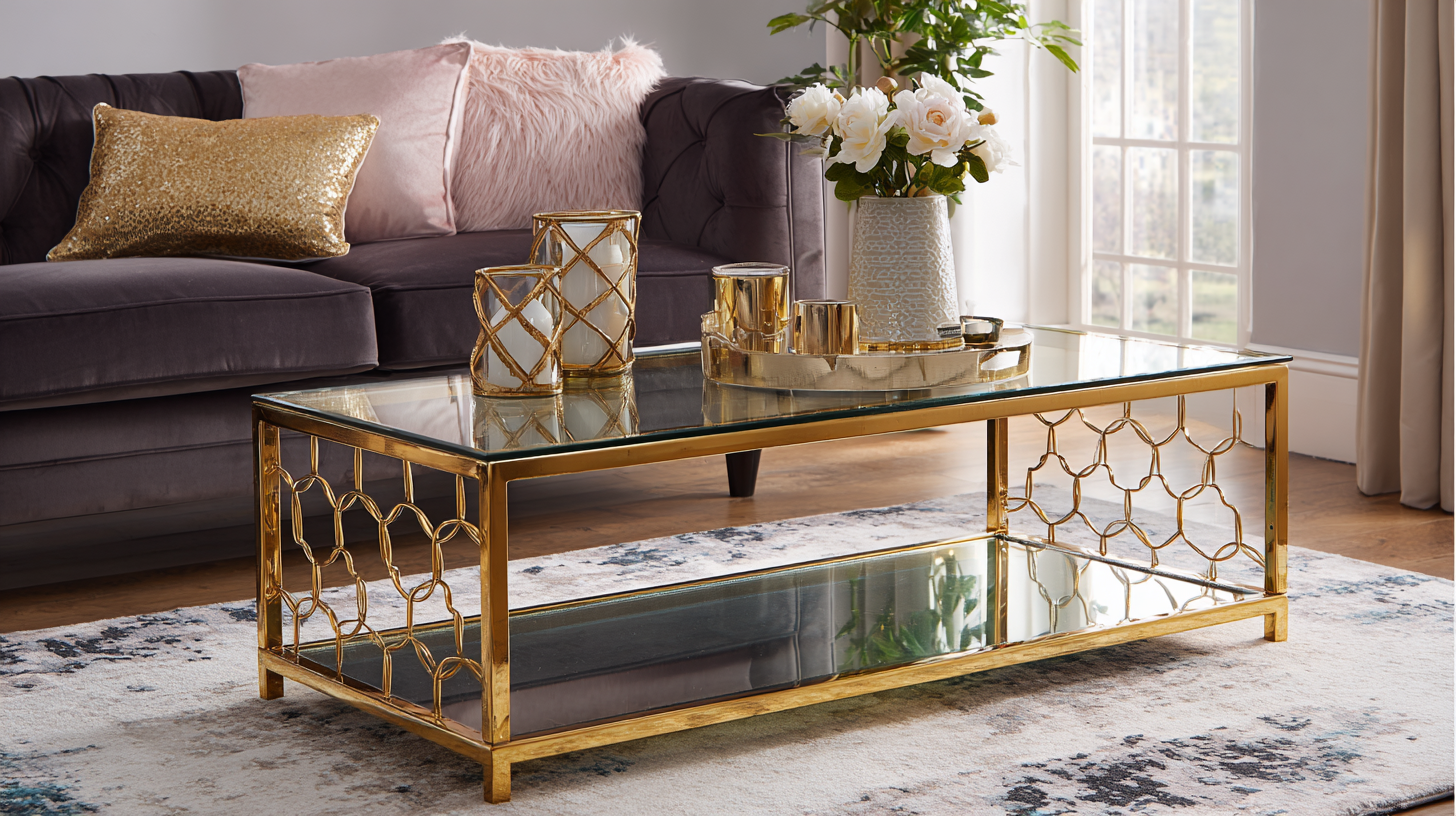7 Reasons Why the Best Glass Coffee Table Can Transform Your Living Space in 2023
In 2023, the trend of incorporating a Glass Coffee Table into modern living spaces has surged, driven by a blend of aesthetic appeal and functional versatility. According to a report by Grand View Research, the global furniture market is expected to reach USD 650 billion by 2025, with glass furniture witnessing significant popularity due to its sleek and contemporary look. Glass Coffee Tables not only enhance the visual dimension of a room but also contribute to a sense of openness and lightness, making them ideal for both small and expansive environments. Additionally, the rise of "Made in China" products has significantly impacted this sector, with many consumers looking for high-quality, affordable options that don’t compromise on style. As we explore the seven transformative reasons behind the Glass Coffee Table's growing appeal, it becomes clear why this piece is a must-have in today’s curated living spaces.

The Rising Trend of Glass Coffee Tables in Home Design for 2023
The trend of incorporating glass coffee tables into home design has seen a remarkable rise in popularity throughout 2023. According to a recent report by the American Home Furnishings Alliance, over 40% of homeowners are opting for glass coffee tables, marking a significant shift from traditional wooden or metal options. This surge can be attributed to the versatility and modern aesthetic that glass tables bring to a living space, effortlessly complementing a variety of interior styles—from minimalist to eclectic.
Furthermore, the transparency of glass furniture creates an illusion of spaciousness, an essential feature for urban dwellers facing space constraints. In a study by the National Association of Realtors, homes showcasing glass elements experienced a 15% increase in buyer interest, highlighting the effectiveness of glass coffee tables in enhancing perceived room size and light. With their ability to fuse functionality with style, glass coffee tables are not just a fleeting trend; they are positioning themselves as a staple in contemporary home design as more people seek to create open, airy environments.
Market Growth: Analyzing the Glass Furniture Sector Between 2020 and 2025
The glass furniture sector is experiencing significant growth, projected to see a remarkable increase in market size from $4.41 billion in 2025 to $5.98 billion by 2032. This growth reflects a compound annual growth rate (CAGR) of approximately 4.45%. Such a trend underscores the rising popularity of glass furniture, which not only enhances the aesthetic appeal of living spaces but also caters to a modern lifestyle that values both style and functionality.

As consumer preferences lean towards minimalist designs and versatile decor options, glass coffee tables emerge as a favored choice among homeowners and interior designers alike. They offer a unique blend of elegance and transparency that allows light and space to flow seamlessly, making them ideal for various design themes. Moreover, the overall expansion of the furniture market, expected to grow from $568.6 billion in 2024 to $878.14 billion in 2032, further fuels the demand for premium glass pieces. As more people invest in their living environments, the glass coffee table stands out as a transformative element that can refresh and elevate any room in 2023.
Impact of Aesthetics: How Glass Coffee Tables Enhance Living Space Appeal
In 2023, the aesthetic impact of glass coffee tables has become more significant than ever. These pieces of furniture are not just functional; they serve as style statements that can elevate any living space. The transparency of glass creates an illusion of more space, making small rooms feel bigger and more open. By reflecting natural light, glass tables brighten up the environment, enhancing the overall atmosphere of your home.

Moreover, glass coffee tables complement various interior design styles, from minimalist and modern to classic and eclectic. Their sleek surfaces can showcase decorative items like books, candles, or floral arrangements without cluttering your space. By seamlessly blending with other elements in the room, these tables draw attention without overwhelming the overall décor. Ultimately, incorporating a glass coffee table allows homeowners to express their personal style while creating a light, airy, and inviting atmosphere in their living spaces.
Durability and Functionality: Why Glass Tables are a Smart Investment
When it comes to furnishing your living space, durability and functionality are key factors in making a smart investment. Glass coffee tables have emerged as a leading choice for homeowners looking for both aesthetic appeal and practical benefits. According to a report from Market Research Future, the global furniture market, which includes glass tables, is expected to reach USD 650 billion by 2025, with an increasing trend toward materials that offer longevity and versatile design.
Glass tables offer resistance to scratching and staining, making them an excellent choice for busy households. A study by the American Furniture Manufacturers Association highlights that glass furniture pieces are not only easy to clean but also significantly less prone to damage compared to traditional wooden tables. This added durability, combined with their lightweight nature, allows for easy rearrangement in your living space, adapting to different styles and occasions effortlessly. Furthermore, their ability to reflect light can make even small spaces feel larger and more inviting, transforming your environment without the need for extensive renovations.
Sustainability Factors: The Eco-Friendly Edge of Glass Furniture Choices
When considering furniture choices that promote a sustainable lifestyle, glass coffee tables stand out as a compelling option. One of their key eco-friendly advantages lies in the recyclability of glass. Unlike many other materials, glass can be endlessly recycled without losing its quality. This property not only reduces waste but also minimizes the demand for new raw materials, making glass coffee tables a responsible choice for environmentally conscious consumers.
In addition to being recyclable, glass furniture can also contribute to energy efficiency. The production of glass has become increasingly sustainable, with manufacturers often utilizing renewable energy sources in their processes. Furthermore, glass coffee tables require less maintenance compared to wood or other materials, reducing the need for harsh chemicals and solvents often used in cleaning and upkeep.
By choosing glass furniture, you’re not only elevating your living space aesthetically but also making a commitment to a more sustainable future. A well-chosen glass coffee table can reflect your values while enhancing your home’s design, making it a smart, eco-friendly investment.
